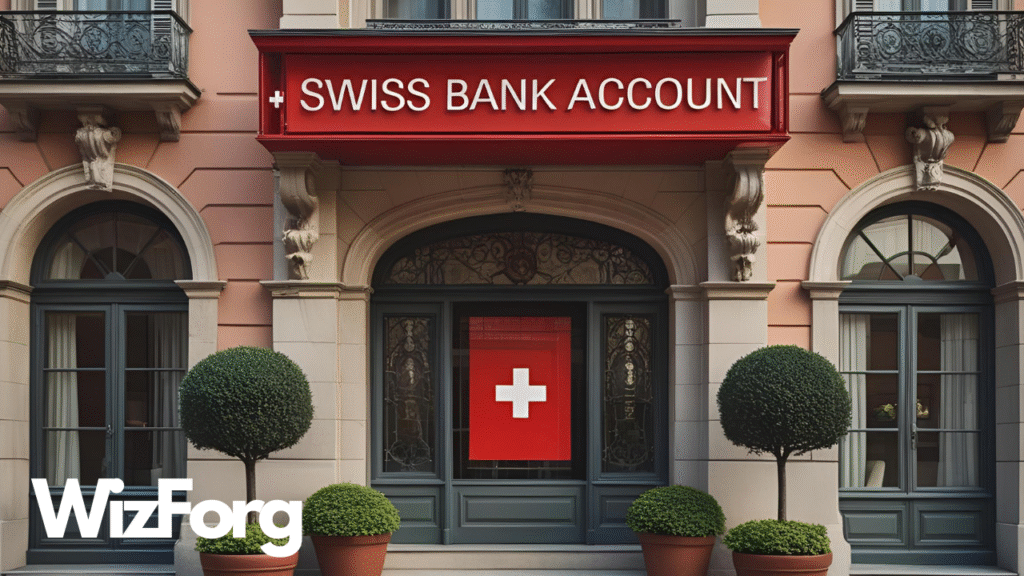For decades, Swiss bank accounts have been wrapped in mystery, privilege, and controversy. In movies and headlines, they often appear as secret vaults where the ultra-wealthy hide their fortunes, criminals stash illicit gains, and tax evaders keep governments guessing. But what makes Swiss bank accounts so famously private? And why has their reputation become a topic of international debate?
A History Rooted in Secrecy: Understanding the roots of Swiss banking secrecy is crucial to grasping its significance in the global financial landscape. The roots of Swiss banking secrecy can be traced back to the early 20th century, with the Swiss Banking Law of 1934 being a pivotal moment. This law, enacted during a time when authoritarian regimes like Nazi Germany were pressuring Swiss banks for information on Jewish account holders, made it illegal for bankers to disclose the identities of account holders, with penalties including imprisonment. The timing of this law was not coincidental, as it was a direct response to protect the assets of those being targeted.
This deep commitment to discretion quickly became a cornerstone of the country’s financial identity. Switzerland’s political neutrality and economic stability further enhanced its appeal as a haven for international capital. Over time, Swiss banks cultivated a reputation for safeguarding wealth through confidentiality, security, and an unwavering code of silence.
How Swiss Banking Secrecy Works
Unlike typical banks around the world, Swiss banks prioritize customer confidentiality above nearly everything else. Even within the bank, only a few employees might know a client’s full identity. While account balances and transactions are monitored internally, this information is not shared externally without strict legal protocols.
Swiss banking laws prohibit the disclosure of any client information unless ordered by a Swiss judge or if the request involves serious crimes, such as terrorism or organized crime. Simply having unpaid taxes or being under investigation isn’t always enough to pierce the veil of secrecy.
Additionally, Swiss banks have historically offered numbered accounts, where the owner’s identity is replaced by a number known only to a few key staff members. This further increased the aura of mystery and privacy.
The Appeal of Swiss Accounts
So, who uses Swiss bank accounts, and why? The client list includes international businesspeople, royalty, celebrities, and, yes, a few notorious individuals. Many clients are seeking financial privacy, security from unstable governments, or a means to diversify their assets internationally.
Swiss banks are renowned not only for their discretion but also for providing high-quality wealth management services. Their services include asset protection, estate planning, and investment advice. The accounts often come with minimum balance requirements, fees, and rigorous documentation to meet compliance standards. In other words, they’re not exactly for the average person.
A Growing Controversy
Swiss banking secrecy has come under increasing scrutiny from governments and watchdog organizations worldwide. Critics argue that these accounts have helped enable money laundering, corruption, tax evasion, and other financial crimes.
Over the years, numerous scandals have exposed how illicit money flowed through Swiss banks. In response to growing international pressure, Switzerland has gradually loosened its privacy rules. Major policy shifts began after U.S. authorities began investigating Swiss banks for helping American citizens hide income offshore. In 2009, banking giant UBS paid a $780 million fine and agreed to hand over the names of thousands of account holders.
That case marked a turning point. In 2014, Switzerland signed on to the OECD’s Common Reporting Standard (CRS), a global agreement for exchanging financial information between countries. Since then, Swiss banks have shared account data with dozens of governments worldwide, a huge departure from their previous stance.
Are Swiss Accounts Still Secret?
While Swiss bank accounts still maintain a level of privacy, the nature of this secrecy has evolved. Today, Swiss banking secrecy is increasingly influenced by global transparency agreements and tighter regulations, marking a significant departure from its historical stance.
Modern Swiss accounts require full disclosure of identity, legitimate sources of funds, and compliance with international anti-money laundering laws. The once-mythical anonymous numbered accounts have largely disappeared or been heavily regulated.
In short, secrecy has become relative. If you’re a lawful international client, your account will still be treated with discretion. But if you’re hiding something illegal, Swiss banks are no longer the bulletproof shield they once were.
Why the Reputation Endures
Despite these changes, Swiss banks remain synonymous with confidentiality and elite wealth. The country’s political neutrality, legal structure, and established reputation still attract high-net-worth individuals and corporations seeking stability and security.
Much of the mystique comes from legacy and branding. Swiss banking secrecy became a cultural icon, reinforced by media and Hollywood portrayals of shadowy transactions and secretive vaults beneath the Alps. While the reality today is more transparent and regulated, the brand of Swiss privacy remains powerful.
The Future of Swiss Banking
The Future of Swiss Banking: Swiss banking is not static. As global standards shift toward transparency and ethical investing, the country is repositioning itself, emphasizing compliance, wealth advisory services, and digital innovation over secrecy.
Switzerland remains a major financial hub, but it no longer offers the same level of anonymity it once did. In an age of data sharing and regulatory scrutiny, even the most secretive systems must adapt.
Final Thoughts
Final Thoughts: Swiss bank accounts are still private, but they’re no longer impenetrable. Their legacy of secrecy endures, albeit tempered by modern compliance requirements and international agreements. What was once a fortress of financial anonymity is now a well-guarded but regulated vault, a testament to the enduring legacy of Swiss banking.
Want to explore more about secretive systems, global finance, and untold luxury truths? Visit Wizforg.com and subscribe to our YouTube channel for more content just like this.



